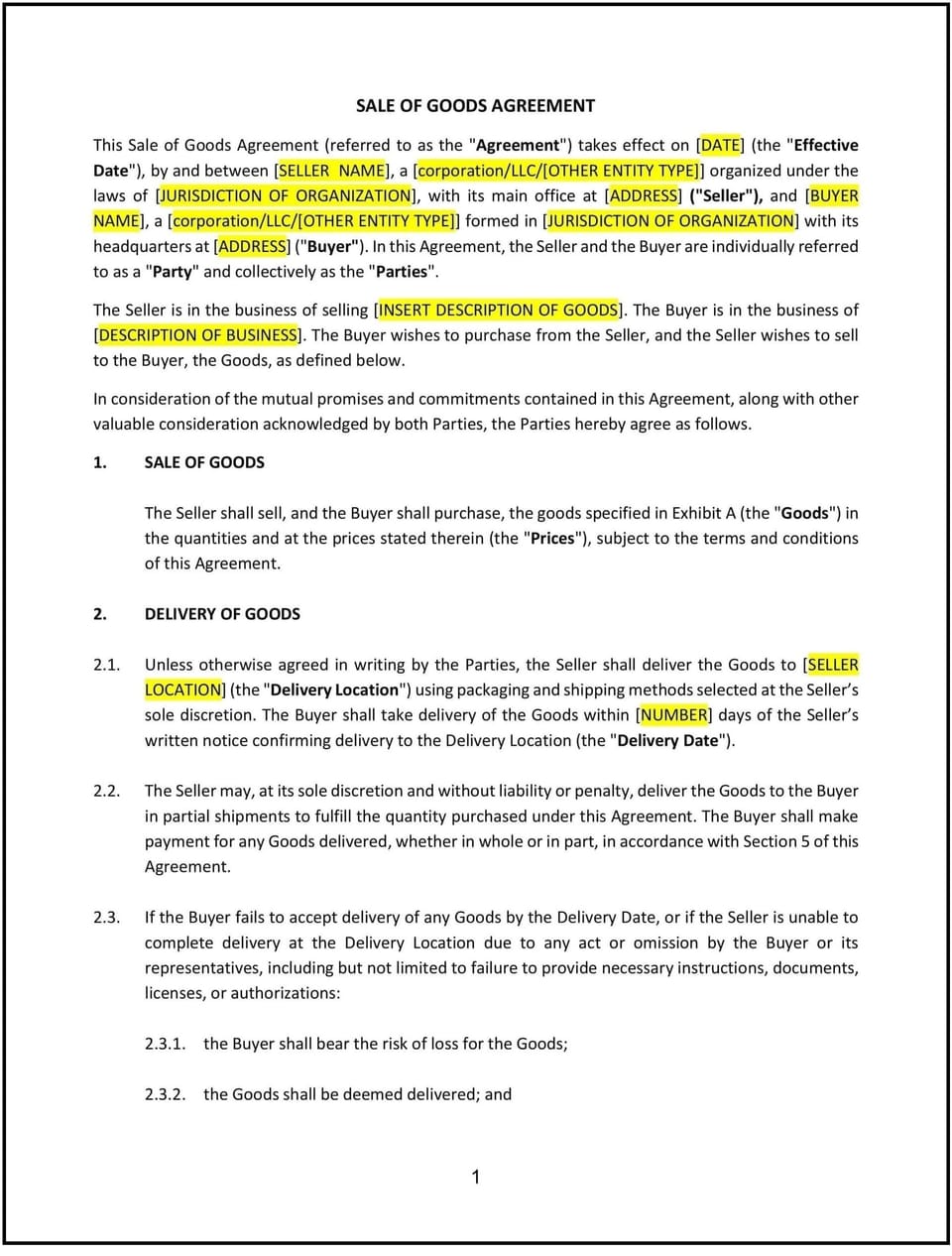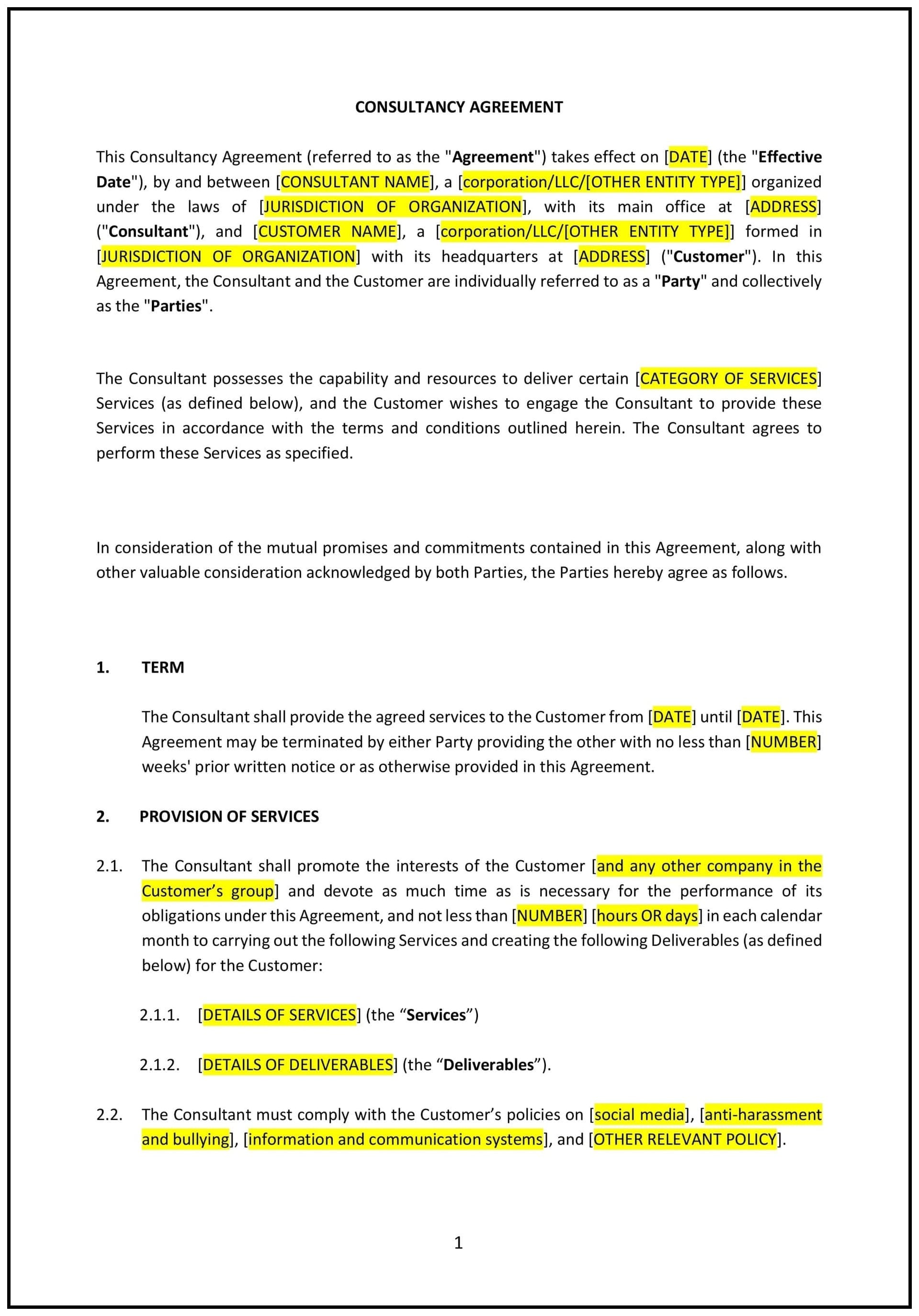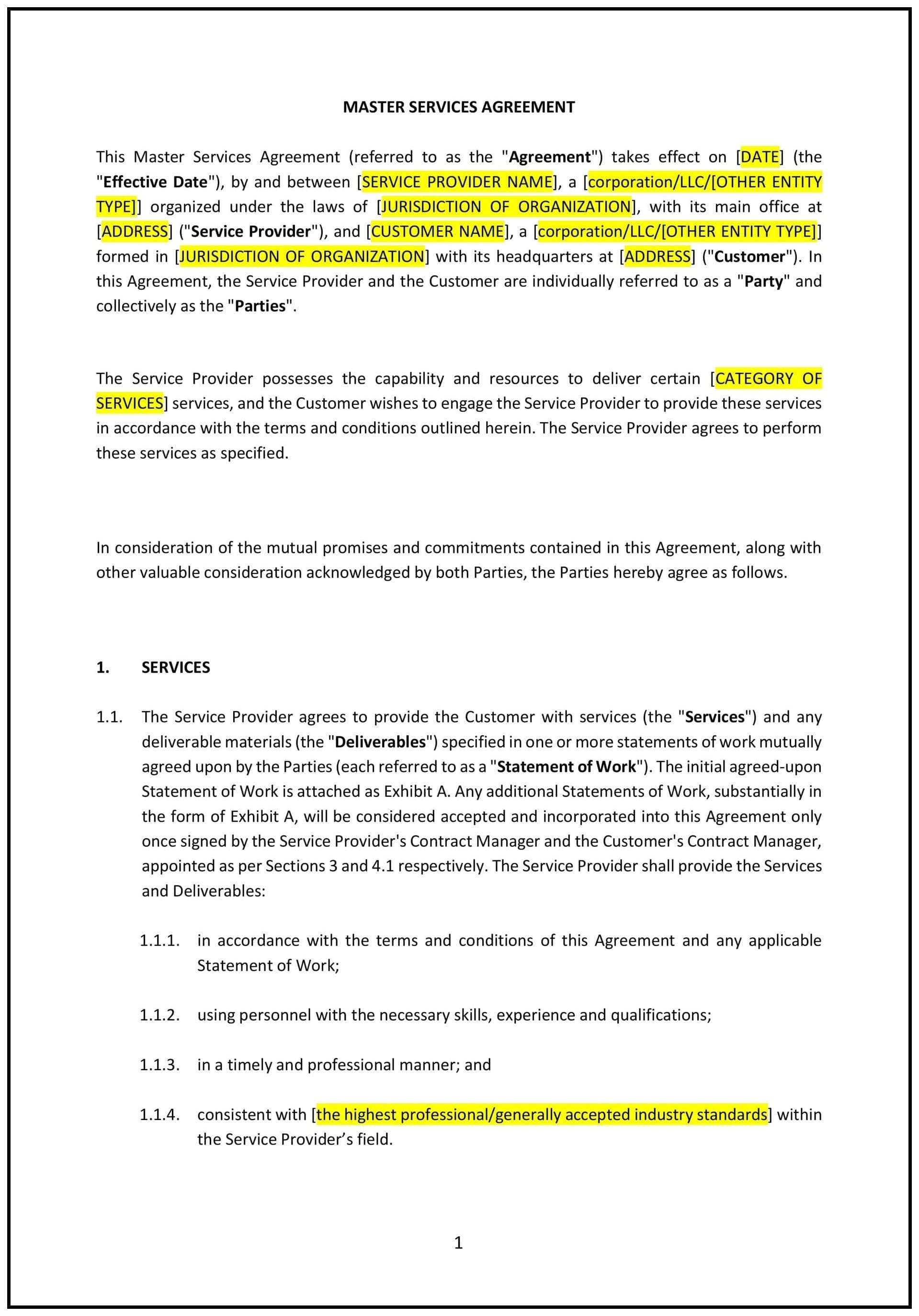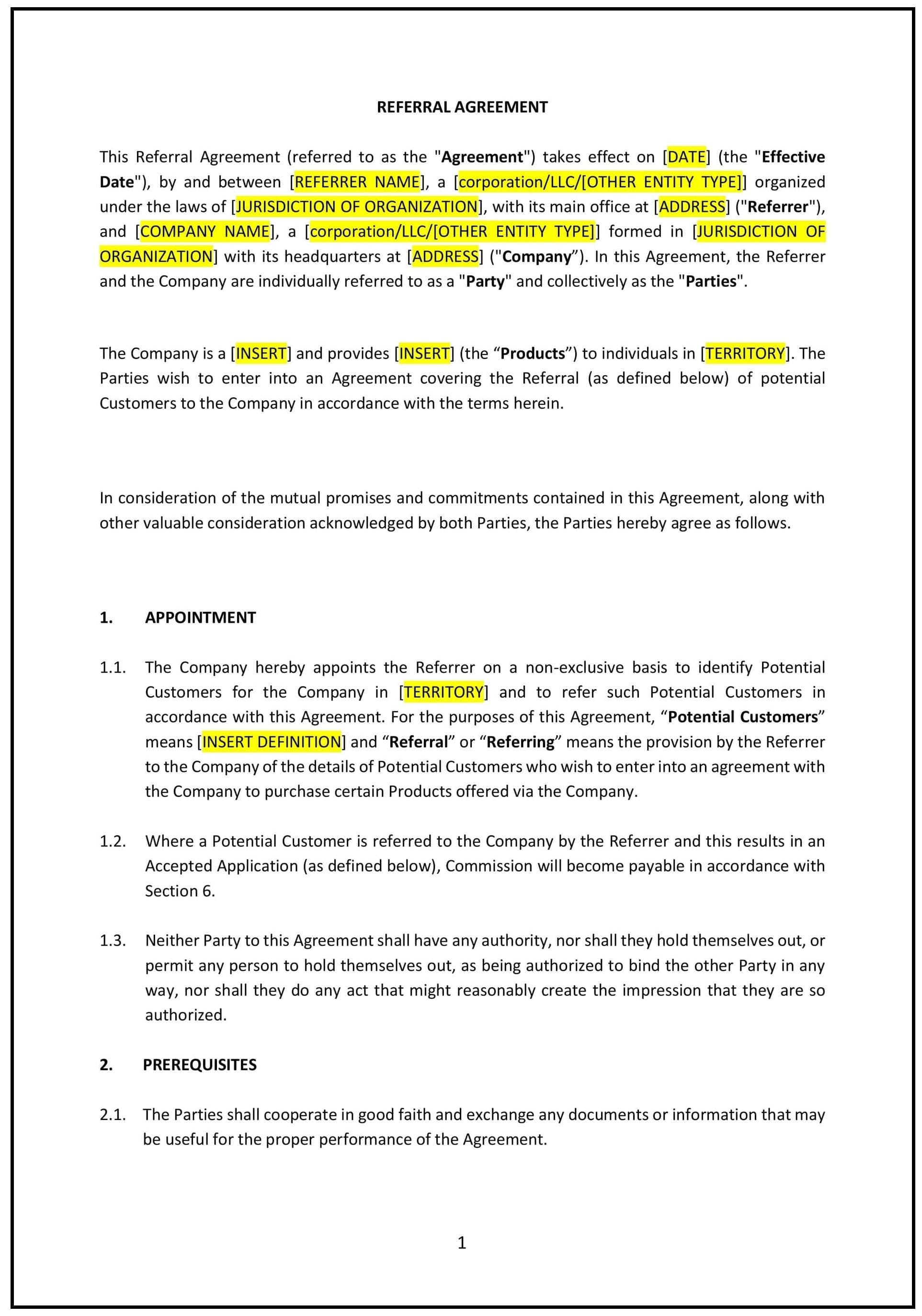Sale of Goods Agreement (Pro-Seller) (California): Free template

Sale of Goods Agreement (Pro-Seller) (California)
A Sale of Goods Agreement (Pro-Seller) in California is a legally binding contract that outlines the terms under which a seller transfers goods to a buyer. This agreement helps protect the seller by specifying payment terms, delivery responsibilities, risk allocation, and warranty disclaimers. It is widely used in industries such as manufacturing, wholesale distribution, retail, and e-commerce, where businesses engage in frequent sales transactions.
California follows Uniform Commercial Code (UCC) Article 2, which governs the sale of goods, including provisions on warranties, risk of loss, and payment terms. However, California also has additional state-specific consumer protection and business laws that may impact sales agreements, particularly for transactions involving individual consumers. Sellers should be aware of laws such as the California Consumer Privacy Act (CCPA) and the Song-Beverly Consumer Warranty Act, which impose specific requirements for product sales and warranties.
A well-structured agreement helps sellers in California secure timely payments, minimize liability, and establish clear expectations with buyers while complying with both UCC provisions and applicable state regulations.
Tips for drafting and maintaining a Sale of Goods Agreement (Pro-Seller) in California
- Clearly define the goods being sold, including specifications, quantity, and pricing, ensuring that descriptions align with any representations made in marketing or advertising.
- Set clear payment terms, including due dates, installment options, and penalties for late payments. California law allows businesses to impose late fees, but they must be reasonable and disclosed in advance.
- Specify delivery details, including shipping costs, timelines, and responsibility for risk of loss. Under California UCC Article 2, risk of loss typically transfers to the buyer upon receipt of the goods unless otherwise stated in the contract.
- Address warranty disclaimers to limit seller liability. California law allows sellers to exclude implied warranties of merchantability and fitness for a particular purpose, but consumer transactions may require compliance with additional consumer protection laws.
- Establish a return and refund policy. California businesses selling to consumers should note that certain transactions may be subject to state-mandated return rights, particularly for defective products.
- Include a force majeure clause to account for unforeseen events such as supply chain disruptions, labor strikes, or natural disasters, which may impact the seller’s ability to fulfill obligations.
Frequently asked questions (FAQs)
Q: What should California businesses include in a Sale of Goods Agreement (Pro-Seller)?
A: The agreement should outline product descriptions, pricing, payment deadlines, delivery terms, warranty limitations, and dispute resolution methods to protect the seller’s interests.
Q: How does a Sale of Goods Agreement (Pro-Seller) benefit sellers in California?
A: It helps sellers establish enforceable terms for transactions, minimize legal disputes, and support compliance with California’s commercial and consumer protection laws.
Q: Are warranty disclaimers enforceable in California?
A: Yes, under California UCC Article 2, sellers can disclaim implied warranties, but transactions involving consumers may be subject to additional protections under laws such as the Song-Beverly Consumer Warranty Act.
Q: What happens if a buyer refuses to pay under a Sale of Goods Agreement in California?
A: The seller may pursue legal remedies, including contract enforcement, collection actions, or repossession of goods, depending on the agreement’s terms.
Q: How should California sellers handle disputes under a Sale of Goods Agreement?
A: Sellers should include a dispute resolution clause specifying whether conflicts will be resolved through California courts, arbitration, or mediation.
Q: Does California require sales tax on goods sold under this agreement?
A: Yes, most sales of tangible goods in California are subject to state and local sales taxes. Sellers must register with the California Department of Tax and Fee Administration (CDTFA) and collect the appropriate sales tax unless an exemption applies.
Q: Can a seller refuse returns under a Sale of Goods Agreement in California?
A: Yes, sellers can limit or prohibit returns in business-to-business transactions, but consumer sales may be subject to specific return requirements under California law.
This article contains general legal information and does not contain legal advice. Cobrief is not a law firm or a substitute for an attorney or law firm. The law is complex and changes often. For legal advice, please ask a lawyer.


